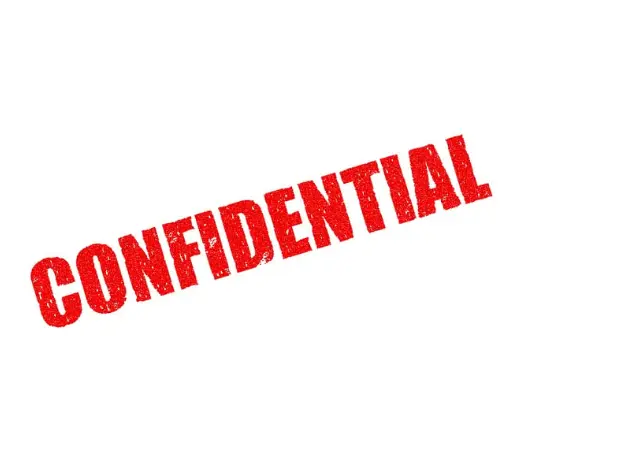In today’s digital age, the terms privacy and confidentiality are often used interchangeably, but understanding their fundamental differences is crucial to navigating the complex landscape of personal information protection. Privacy and confidentiality are two distinct concepts that play vital roles in various aspects of daily life, including legal frameworks, ethics, and different sectors such as healthcare, information technology, and law.

Understanding the Concepts: Privacy vs Confidentiality
Both privacy and confidentiality are fundamental concepts that safeguard sensitive information, but they differ in their scope and application.
Defining Privacy
Privacy refers to an individual’s right to control the access and disclosure of their personal information. It encompasses a broad spectrum of rights, including maintaining anonymity, restricting the collection and use of personal data, and being free from intrusion into one’s personal life. Privacy is essential to human dignity, enabling individuals to have autonomy and control over their personal affairs. It forms the foundation for building trust and establishing secure relationships between individuals and organizations.
When it comes to privacy, there are various aspects to consider. For example, online privacy has become a significant concern in the digital age. With the increasing use of social media platforms and online services, individuals often find themselves sharing personal information without fully understanding the potential consequences. Educating individuals about the importance of privacy and the steps they can take to protect their personal information online is crucial.
Furthermore, privacy also extends to physical spaces. Individuals have the right to expect privacy in their homes, workplaces, and other private areas. This includes protection against unwarranted surveillance or intrusion by others. Laws and regulations are in place to ensure that individuals’ privacy rights are respected and upheld.

Defining Confidentiality
In contrast, confidentiality focuses on the obligation to protect and keep information secure. It primarily pertains to professionals who handle sensitive data in their professional roles, such as healthcare providers, lawyers, and information technology specialists.
The fundamental principle of confidentiality is to ensure that information shared in confidence remains private and is not disclosed to unauthorized individuals or entities. It fosters trust between professionals and their clients or patients, enabling open and honest communication.
Confidentiality is particularly crucial in certain fields, such as healthcare. Patients trust healthcare providers with their personal and medical information, expecting that it will be kept confidential. This trust is vital for ensuring that individuals feel comfortable seeking medical treatment and disclosing sensitive information about their health.
Moreover, confidentiality also plays a significant role in legal proceedings. Lawyers are bound by strict rules of confidentiality to protect their client’s interests and ensure that sensitive information shared during legal consultations remains private. This confidentiality allows clients to be open and honest with their lawyers, facilitating effective legal representation.
Information technology specialists also have a responsibility to maintain confidentiality. As custodians of sensitive data, they must implement robust security measures to protect against unauthorized access or breaches. This includes encryption, access controls, and regular security assessments to ensure the confidentiality of the information they handle.
In conclusion, privacy and confidentiality are related concepts but have distinct meanings and applications. Privacy focuses on an individual’s right to control personal information and maintain autonomy, while confidentiality pertains to professionals’ obligation to protect sensitive information. Both concepts are essential for fostering trust and maintaining the integrity of personal and professional relationships.
The Legal Perspectives on Privacy and Confidentiality
Legal frameworks play a crucial role in defining and shaping the boundaries of privacy and confidentiality. Understanding the complexities of privacy and confidentiality laws is essential in maintaining individuals’ rights and establishing trust in various professional relationships.
Privacy Laws and Regulations
Privacy laws and regulations vary across jurisdictions but generally aim to protect individuals’ personal information from unauthorized collection, use, or disclosure. These laws often establish requirements for organizations regarding data security, consent, notification, access, and rectification of personal data.
Privacy laws have become increasingly important in today’s digital age, where personal information is constantly being collected and processed. They provide individuals with a sense of control over their personal data and ensure that organizations handle this data responsibly.
For example, the General Data Protection Regulation (GDPR) implemented in the European Union sets strict data protection and privacy guidelines. It requires organizations to obtain explicit consent before collecting personal information, provides individuals with the right to access and correct their data, and imposes significant penalties for non-compliance.
By regulating how personal information is handled, privacy laws aim to strike a balance between individuals’ right to privacy and organizations’ need for data to deliver efficient services. They create a framework that fosters trust and accountability between individuals and organizations.
Confidentiality Laws and Regulations
Confidentiality laws and regulations, on the other hand, apply in specific professional contexts. These laws impose legal obligations on professionals to maintain the confidentiality of information shared within those relationships.
One of the most well-known examples of confidentiality laws is doctor-patient confidentiality. This legal obligation ensures that patients can freely disclose their medical history and concerns to their healthcare providers without the fear of unauthorized disclosure. It promotes open communication and trust between patients and healthcare professionals, enabling accurate diagnoses and appropriate treatment.
Similarly, attorney-client privilege is another crucial aspect of confidentiality laws. It protects the confidentiality of communication between attorneys and their clients, allowing clients to share sensitive information with their legal representatives without the fear of it being used against them. This privilege strengthens the attorney-client relationship and facilitates effective legal representation.
Confidentiality laws also extend to other professions, such as therapists, counselors, and clergy members. These laws recognize the importance of trust and confidentiality in these relationships, ensuring that individuals feel safe and comfortable sharing their personal struggles and concerns.
Confidentiality laws and regulations play a vital role in maintaining the privacy and trust necessary for effective professional relationships. They provide individuals with the confidence to seek help and guidance without the fear of unauthorized disclosure, ultimately contributing to the well-being and success of both individuals and society as a whole.
The Ethical Implications of Privacy and Confidentiality
Beyond legal frameworks, privacy and confidentiality also raise important ethical considerations. These considerations delve into the moral dilemmas that arise when balancing competing interests and obligations.
Ethical Dilemmas in Privacy
Privacy concerns often give rise to moral dilemmas, especially in contexts where competing interests collide. For example, technology advancements enable enhanced data collection and analysis, but they also challenge the boundaries of privacy.
Ethical questions arise when balancing the benefits of targeted advertising or public health monitoring against the potential invasion of privacy. On the one hand, targeted advertising can provide consumers with personalized recommendations and offers, enhancing their shopping experience. On the other hand, it raises concerns about exploiting personal information and eroding privacy boundaries.
Similarly, public health monitoring systems can play a crucial role in identifying and containing outbreaks of infectious diseases. However, the extensive collection and analysis of personal health data raise ethical questions about consent, data security, and the potential for discrimination based on health information.
Striking the right balance between privacy and societal benefits is an ongoing challenge that demands thoughtful consideration. It requires ethical frameworks that prioritize individual autonomy and consent while also recognizing the potential benefits that can arise from the responsible use of personal data.
Ethical Dilemmas in Confidentiality
The ethical implications of confidentiality mainly revolve around conflicts of interest and obligations towards third parties. Professionals who handle confidential information must navigate the tension between maintaining confidentiality and other ethical duties, such as protecting vulnerable individuals from harm or promoting public safety.
For instance, mental health professionals might face dilemmas when encountering potential harm to their patients or when dealing with situations involving child abuse. On the one hand, they have a duty to maintain the confidentiality of their patient’s information, which is essential for building trust and facilitating effective therapy. On the other hand, they also have an ethical obligation to report instances of child abuse or harm to prevent further harm to the child involved.
These dilemmas require mental health professionals to make ethical decisions and thoughtful judgments. They must carefully balance the duty to protect confidentiality with the obligation to prevent harm. This delicate balance necessitates a thorough understanding of legal requirements, professional guidelines, and ethical principles.
Confidentiality also raises ethical questions in other professions, such as law and journalism. Attorneys must maintain client confidentiality, but they may also face dilemmas when their clients’ actions potentially harm others. Similarly, journalists must balance the public’s right to know with the need to protect the privacy and safety of individuals involved in their stories.
Addressing ethical dilemmas in confidentiality requires professionals to engage in ongoing discussions, education, and reflection. They must continually evaluate and update their ethical frameworks to ensure they are serving the best interests of their clients, patients, or the public while upholding the principles of confidentiality.
Case Studies Highlighting the Contrasts
An exploration of privacy and confidentiality would be incomplete without considering real-world examples that highlight the contrasts between the two.
Case Study 1
In a landmark privacy case, a social media platform faced allegations of unauthorized data collection and sharing, compromising the privacy of millions of users. The incident ignited a global debate on individuals’ right to privacy versus the benefits of personalized advertising. It underscored the need for robust privacy regulations and raised questions about the ethical implications of data-driven business models.
Case Study 2
In the legal sector, a lawyer found themselves in an ethical dilemma when a client confided in them about their involvement in a criminal act. The attorney, bound by the duty of client confidentiality, faced the challenge of balancing their obligation to maintain confidentiality with their ethical duty to prevent harm. This case exemplifies the complexities professionals face when navigating confidentiality obligations while ensuring justice and public safety.
In conclusion, privacy and confidentiality are distinct concepts that form the backbone of information protection. While privacy focuses on individual rights and control over personal information, confidentiality emphasizes professionals’ responsibility in safeguarding sensitive data. The legal and ethical aspects of privacy and confidentiality further shape the boundaries of their application, while different sectors must navigate these concepts to ensure secure environments. Recognizing and understanding the contrasts between privacy and confidentiality is essential in promoting responsible data practices and upholding individuals’ rights in an ever-evolving digital world.
